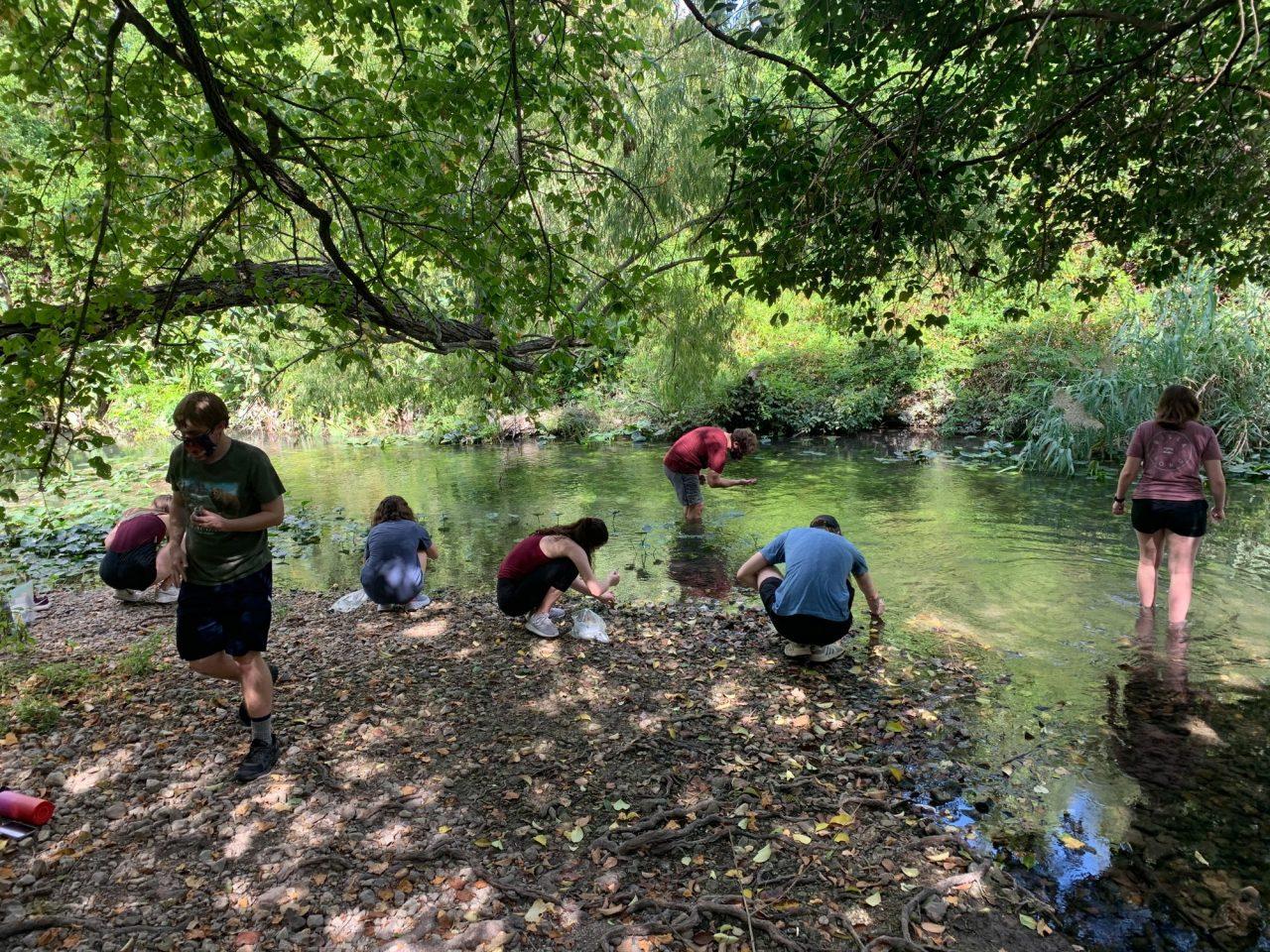photo provided by Kelly Lyons
The COVID-19 pandemic is now entering the third semester at Trinity, with very little changes in cases and handling. Nonetheless, classes must continue, and professors, as well as students, are still faced with difficult decisions when it comes to deciding classes.
As registration opens, students find that more classes are being offered through Tigerflex, which means that the class is offered both in-person and online. As well, certain labs have become hands-on only, meaning that it is a requirement to be there in person.
Both students and professors of all disciplines are working to accommodate and create an inclusive and worthwhile environment for all, including professor of biology, Dr. Kelly Lyons.
“We have a high-quality education to maintain, so I try to bend over backwards to accommodate them,” Lyons said.
However, despite the attempts to make a functioning environment for every student, it has become more challenging as more students begin to opt to in-person learning and attempt to return to campus. Despite these incoming changes to campus, there have still been many factors of students’ lives, such as the pandemic, that have yet to change. Sahan Suggala, first-year, is facing the pressures of balancing his education with his concerns about the pandemic.
“I might have to come to campus next semester even if COVID persists because as we go to higher-level courses, there are less spots and good times available for my off-campus needs,” Suggala said.
Although the pandemic continues, students and faculty are attempting to return to the traditional styles of learning, which includes maintaining the academic policies that are used in regular years.
“I think we are doing students a disservice by allowing too much of [pass/fail], because the rest of the world didn’t get a pass/fail,” said Lyons. “We all need a few pass/fail days for sure, but for students who have things that have settled out and are practicing safe distancing, I feel that it’s our job to maintain expectations as would be maintained in the workplace, where they’ll go in the future.”
Many students share this same attitude towards changes in academic policy, as they have planned their futures very tightly with grad school and beyond in mind. Although it comes through on a case by case basis, most students would agree that they can’t afford to sacrifice points to their GPA or graduation requirements.
“Everything’s got to be on a case by case basis. There’s no blanket policy that works, everybody’s got something new going on, and everybody deserves sympathy,” said Lyons. “This semester, I’ve taken out content, relaxed deadlines, and I have been super gentler, but I also don’t want them to leave with less of an education than people before them because that’s not fair to them.”
Since many students are concerned about performing labs during the next semester, it has been a hotly contested issue that has been granted much coverage, but other classes in different disciplines are fighting their own battles to figure out the next steps as well. One associate professor of music, Dr. James Worman, weighed in.
“I do think every professor should exhibit empathy, patience, flexibility and individualize the expectations for each of their students in meeting deadlines, processing information, and address grading and evaluation of mastery in a similar fashion [to normal semesters],” Worman said.
As students prepare to return to campus while also learning to continue being partially online, concerns around safety and procedures have arisen.
“I have been on campus every day this fall semester and have never felt uncomfortable or worried about my own well being, or more importantly, for the well being of my students,” said Worman.
Professors and students alike are continuing to navigate the difficulties of the current time period alongside preparing for the upcoming semester. Despite the lack of changes concerning the outside issues being faced, professors continue to approach learning as a new experience for them and students.
“I think the good thing about faculty, in general, is that we love new challenges,” said Lyons. “Faculty are pretty open-minded and open to new ideas, and I think that while it’s been a hardship, a lot of us embrace novelty and new technologies. We want to be learning. We don’t want to be stagnant, no matter how old we are.”
There are still many questions to be answered concerning the upcoming spring semester, but due to the pandemic, much of it is constantly changing or being updated, leaving faculty and students in a different position than normal. Despite this, faculty are still giving their all in order to make it a worthwhile semester that is both efficient and exciting for students.













